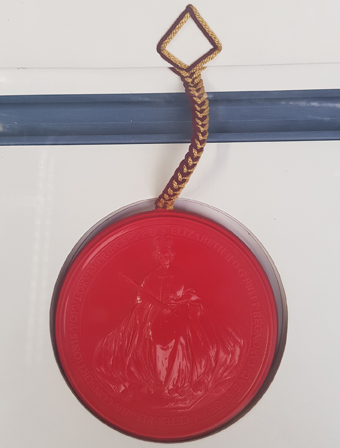A dozen years ago or more, the fear was that the likes of Cisco would enter the electronic security industry; they would commoditise the sector, and CCTV, access control and alarms would become a small, unimportant part of networked IT.
Security would only be the guys who checked your passes in reception as you dashed by, tapping away at your mobile devices. It didn’t turn out quite that way, maybe because to the internet and cyber giants, security was indeed a fairly unimportant market. It may be that fear has happened anyway, because even in those last dozen years, data has become ‘the new oil’. Outside the closed wagons of private security, other people are not that interested in department names and occupational boundaries. They just want jobs doing and profits making. Hence the interest in ‘resilience’ rather than straight security (page 50), addressing more directly the imperative of a business and any other organisation to keep going, never mind what.
The display of the royal charter that has made the Chartered Institute of Information Security (page 36) was, as those infosec managers attending an event in Birmingham last month acknowledged, was significant. If cyber and physical branches of security are competing, for who orders the other around and who has more standing inside a business and in society, chartered status is a plus for cyber (or information security, as some would rather call it). The Security Institute’s efforts to become chartered around 2010 faltered basically because it couldn’t meet the criteria, such as enough members with degree qualifications. An industry-wide, not so much an Institute, shortcoming. Has that got any better in the years since? Police are having their starters take degree courses. Private security may benefit – should you really need a degree to become a police constable, let alone a good one? What of the cost, for one thing? Private security could be relatively more attractive to youths who don’t want a load of student debt. Yet how does the sector truly gain from a low-qualified workforce?
If private security (apart from cyber, making strides towards becoming a true profession) is to make the best of being a line of work that’s fairly easy to enter and gain experience and get on in, you would expect it to be open to all; women, for instance. Yet years of talk has not made much difference. Other occupations, facing the same issue, are doing something about it. The Metropolitan Police (headed by a woman) are offering part-time hours. Should the Security Industry Authority have an opinion, play a part or even lead? Its new chief Ian Todd, having sensibly taken a few months to find his feet, has spoken of what the SIA might focus on (page 54). The small print of the Home Office annual report, however, offers figures to back what cynics said the SIA was all along; a tax on business. This year and last the SIA’s passed a surplus of about £3m to Government, having collected from badge applicants and approved companies more than the £30m or so it runs on.










